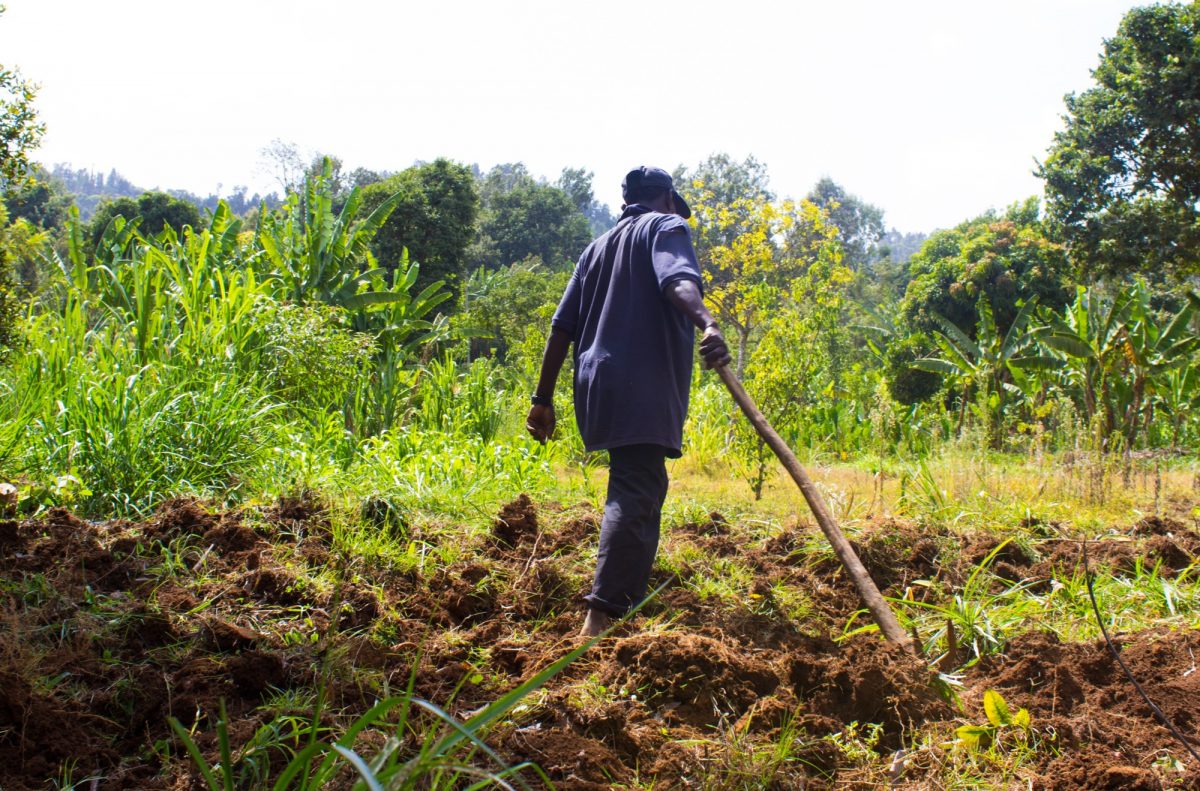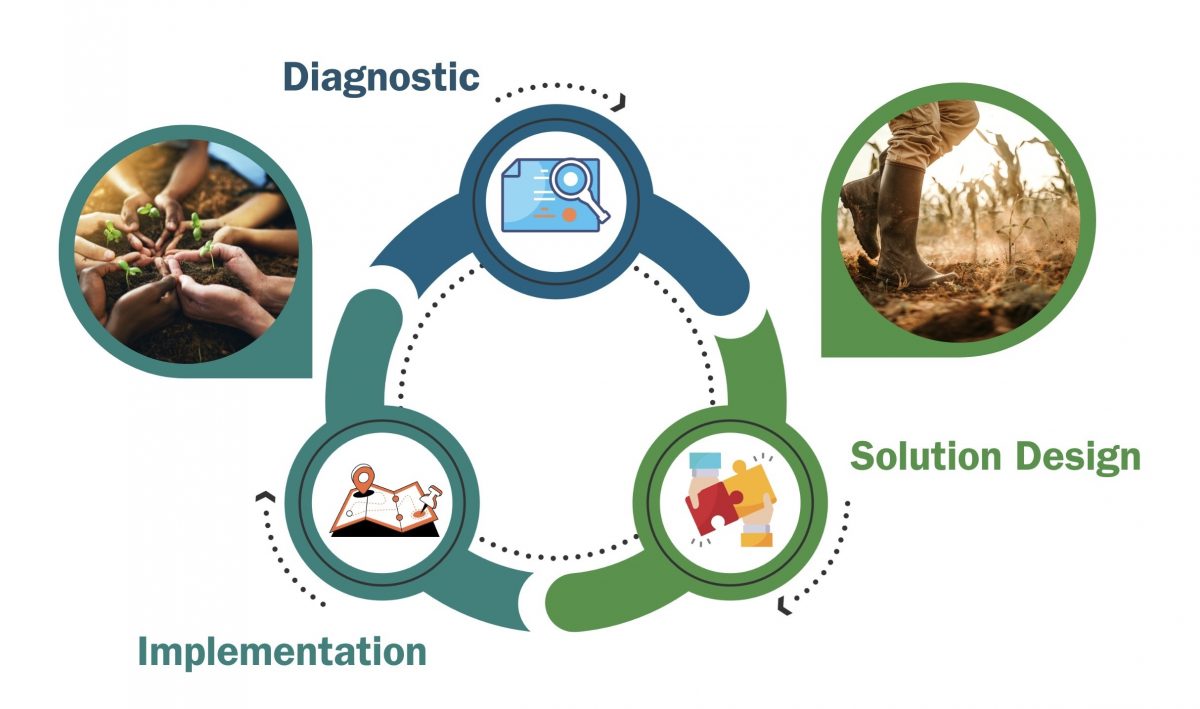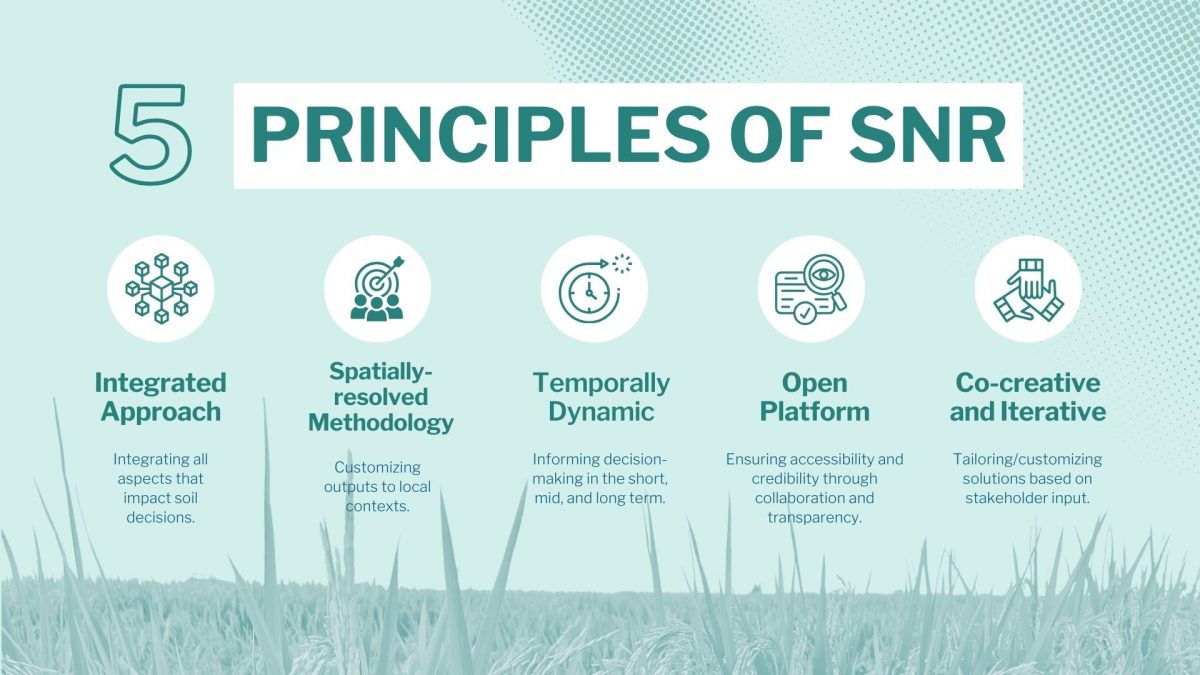In Kenya, Open Contracting Improves Efficiency & Curbs Corruption
On 31st August 2020, President Uhuru Kenyatta directed the Ministry of Health to come up with a transparent, open method and mechanism through which all tenders and procurement done by Kenya Medical Supplies Agency (KEMSA) will be available online. The directive follows allegations of corruption in the procurement of COVID-19 emergency supplies.
With citizens’ lives on the line and government spending at record highs, ensuring accountability to citizens is imperative to maintaining trust and effectively managing KEMSA’s procurement in response to COVID-19. Open procurement data can help in improving the efficiency of emergency procurement and support civil society groups to detect corruption and monitor the effectiveness of service delivery.
“This level of transparency and through the use of technology will go a very long way in ensuring that we have the confidence of our people that those placed in institutions are able to manage the resources of the Kenyan taxpayer plus our development partners in an open and transparent manner” – President Uhuru Kenyatta
Much can be learned from Makueni County in Kenya, a county that publishes and uses open, accessible, and timely information on government contracting to engage citizens and businesses. The Makueni Open Contracting Portal is an interactive site built by Development Gateway (DG) that provides detailed information on each step of the tender, award, and contract implementation process at the county level. These steps are now recorded within the interactive Makueni Open Contracting Portal – making information available for citizens at each step of the process. The county plans to go a step further to publish all implementation data such as community monitoring reports, also known as PMC reports and supplier payment vouchers.
The goal of the portal is to improve the efficiency of public procurement management and support the delivery of higher-quality goods, works, and services for residents of Makueni County through enhanced citizen feedback.
What We Learned from Makueni County
Lesson 1: Public Data Improves Efficiency
The primary role of the Ministry of Health and KEMSA in Kenya during an emergency situation is to provide citizens timely, affordable, and efficient supplies and services. Digitizing and publishing procurement data will provide the Ministry insights on whether funding and services are reaching intended beneficiaries.
Publishing procurement data will also encourage better monitoring from relevant state and non-state actors. The Ministry of Health and KEMSA will have the opportunity to aggregate non-state actors’ feedback and state actor insights. This feedback will enable them to make data-driven decisions that will improve service delivery to citizens, promote efficient allocation of resources and ultimately saving costs.
DG has developed interactive M&E dashboards to support analysis currently used by Makueni County. The series of charts and visualizations provide helpful data insights – such as top suppliers that received contracts and the percentage of awards that go toward the Access to Government Procurement Opportunities (AGPO), which requires tenders to be awarded to women, youth, and people with disabilities.
Since the start of the use of the Makueni open contracting portal in 2019, improved resource utilization and efficiency in procurement has been identified by the County leadership. Governor Kivutha Kibwana cited that the County has saved Kes. 30,000,000 from the Roads department as a result of using the portal.
Lesson 2: Building Trust is Essential to Combating Corruption
The complexity of emergency responses such as COVID-19 requires cooperation between the private sector, national, and county government to ensure timely delivery of supplies. KEMSA publishing data will promote feedback and engagement of business and citizens further building trust and collaboration. Publishing procurement data also equips civil society and citizens with the information needed to help combat corruption. For example, reporting counterfeits, frauds, and scams – which has been a key corruption issue identified globally in COVID-19 response procurement, particularly PPEs.
DG has implemented its corruption risk dashboard in Makueni, which uses high powered analytics and global research to identify risk profiles for potential corruption in procurement. KEMSA can adopt the corruption risk dashboard as a red-flagging tool to assist in identifying procurement activities that merit in-depth auditing of corruption risk – including fraud, collusion, and process rigging – over time. These analytics will allow the organization to address cases of corruption before taxpayer money is lost.
Lastly, publishing Beneficial ownership data can enable governments to quickly perform minimal standards of due diligence on companies they are buying goods and services from. As well as reducing the immediate risk of corruption, beneficial ownership data provides a valuable trail for future audit.
Related Posts

Economic Toll of Tobacco-Related Diseases in Kenya: New Research Findings
Development Gateway: An IREX Venture (DG) is pleased to announce the publication of a research manuscript on the Economic Costs of Tobacco-Related Illnesses in Kenya. This research was carried out as part of the Tobacco Control Data Initiative (TCDI) activities in Kenya and is part of a broader report on Morbidity and Mortality from Tobacco Use in Kenya.

Building a Sustainable Cashew Sector in West Africa Through Data and Collaboration
Cashew-IN project came to an end in August 2024 after four years of working with government agencies, producers, traders, processors, and development partners in the five implementing countries to co-create an online tool aimed to inform, support, promote, and strengthen Africa’s cashew industry. This blog outlines some of the key project highlights, including some of the challenges we faced, lessons learned, success stories, and identified opportunities for a more competitive cashew sector in West Africa.

Unlocking Africa’s Agricultural Potential: Introducing the Soil Nutrient Roadmap
For over a decade, Development Gateway: An IREX Venture (DG) has been at the forefront of digital agriculture, leveraging agricultural data to support input monitoring, value chain analysis, and farmer-centric governance models. With funding from the Gates Foundation, DG is launching the Soil Nutrient Roadmap (SNR), a cutting-edge initiative using geospatial data to estimate current and future soil and crop nutrient requirements.
Food and nutrition insecurity are among our time’s most remarkable development challenges. In 2023, an estimated 846.6 million people across Africa faced moderate-to-severe food insecurity. Considering that this accounts for 58% of the continent’s total population, it is evident that immediate and long-term solutions are needed to strengthen food systems and address Africa’s food insecurity crisis.
The World Soil Charter emphasizes that healthy soil is fundamental to food security. However, soil degradation poses a major threat, with approximately 33% of global soils classified as moderately to highly degraded, 40% located in Africa. If left unaddressed, projections indicate that over half of Africa’s current arable land could become unusable by 2050.

The Nairobi Declaration: A Continental Call to Action
In May 2024, the Heads of State and Government of the African Union met in Nairobi, Kenya, as part of the Africa Fertilizer and Soil Health Summit. With regenerating degraded soils and enhancing soil health labeled as essential for building resilient food systems, the Summit introduced a 10-year action plan to:
- Reverse land degradation and restore soil health on 30% of degraded soil by 2034;
- Triple domestic production and distribution of fertilizers by 2034 and
- Ensure that at least 70% of smallholder farmers have access to tailored recommendations & advisory services.
A significant challenge, however, is the lack of a comprehensive data framework for evidence-based national action plans and investment strategies, providing a crucial opportunity to leverage digital solutions and data-driven decision-making to inform national soil health strategies.
Introducing the Soil Nutrient Roadmap (SNR)
For over a decade, Development Gateway: An IREX Venture (DG) has been at the forefront of digital agriculture, leveraging agricultural data to support input monitoring, value chain analysis, and farmer-centric governance models. With funding from the Gates Foundation, DG is launching the Soil Nutrient Roadmap (SNR), a cutting-edge initiative using geospatial data to estimate current and future soil and crop nutrient requirements.
Building on the momentum of the Africa Soil Health Summit and the Nairobi Declaration, SNR aims to support African countries in designing national soil health strategies and investment plans. This initiative seeks to provide timely, relevant, and context-specific data for governments, the private sector, and agricultural stakeholders, enabling them to make informed decisions on soil health interventions.
To achieve this, SNR’s primary objective is to:
- Estimate current and future soil and crop nutrient requirements at national and subnational levels.
- Develop a roadmap to coordinate stakeholders and support investment planning.
- Enable governments, private sector actors, and implementing partners to collaborate on soil nutrient solutions.
- Provide decision-support tools for policy formulation and agricultural strategy development.
Designing and Testing the SNR Concept
In 2023/2024, with support from the Gates Foundation and Boston Consulting Group (BCG), in partnership with the International Fertilizer Association (IFA), collaborated to design a framework for national-level soil nutrient roadmaps. Ministries of Agriculture in Ethiopia, Rwanda, Kenya, Tanzania, and Ghana strongly supported the initiative, emphasizing its potential to transform fertilizer sectors and investment priorities in soil health.
Encouraged by the interest from a wide range of national and subnational stakeholders, the proof-of-concept has progressed into a 24-month acceleration phase led by DG. This phase will focus on developing an interoperable, data-driven platform to facilitate coordinated action and inform policy, regulatory, and investment decisions.
The project will be implemented over 2025–2026 in up to four Sub-Saharan countries: Kenya, Ethiopia, Tanzania, and Ghana. It will produce:
- The SNR framework: A suite of data, protocols, and models generating diagnostics to prioritize soil health interventions.
- A user dashboard: An interactive tool for country-level scenario visualization.
- Performance Indicators: Country-specific metrics for measuring impact and progress.
SNR will also investigate partnership models and sustainability strategies to ensure long-term impact and viability in different regions and chart a path toward the project’s localization.
The Roadmap
To address the trifold challenges faced by Africa’s agricultural sector of stagnating crop yields, degrading soil health and plant nutrition, and fertilizer dependency, SNR’s approach uses a 3-step journey:
1. Diagnostic Phase: Identifying Key Soil Health Challenges
This first phase of the roadmap aims to map out crop nutrient cycles, quantify indigenous nutrient supply, identify nutrient deficiencies, and determine key limiting factors such as soil acidity, erosion, and leaching. The insights will inform the setting of ambition levels and data-driven targets for national soil health strategies.
2. Solution Design Phase: Developing Targeted Interventions
Using diagnostic insights, SNR will design context-specific solutions, prioritizing key intervention areas, such as:
- Soil health & fertility practices such as intercropping and liming;
- Nutrient supply optimization;
- Water management;
- Seed improvement and
- Agricultural mechanization.
Each solution will undergo a simulation to determine its technical and financial requirements, the return on investment (ROI) assessment, and the development of regulatory, economic, training, and infrastructure support mechanisms.
3. Implementation Planning: Delivering Scalable Solutions
This final phase integrates prioritized solutions into an actionable national roadmap, detailing funding needs, governance structures, and implementation plans. This phase will also establish a Project Management Office to oversee execution and ensure measurable impact.

By addressing Africa’s interconnected agricultural challenges, SNR will empower governments and stakeholders with data-driven solutions to enhance soil health restoration efforts, increase domestic fertilizer production and distribution, improve smallholder farmers’ access to advisory services, and strengthen agricultural resilience against climate change.
SNR represents a critical opportunity to reshape Africa’s agricultural future, ensuring food security, economic growth, and environmental sustainability. As national soil health strategies take shape, the collaborative efforts of governments, private sector actors, and development organizations will be essential in realizing a resilient and productive agricultural landscape for future generations.
